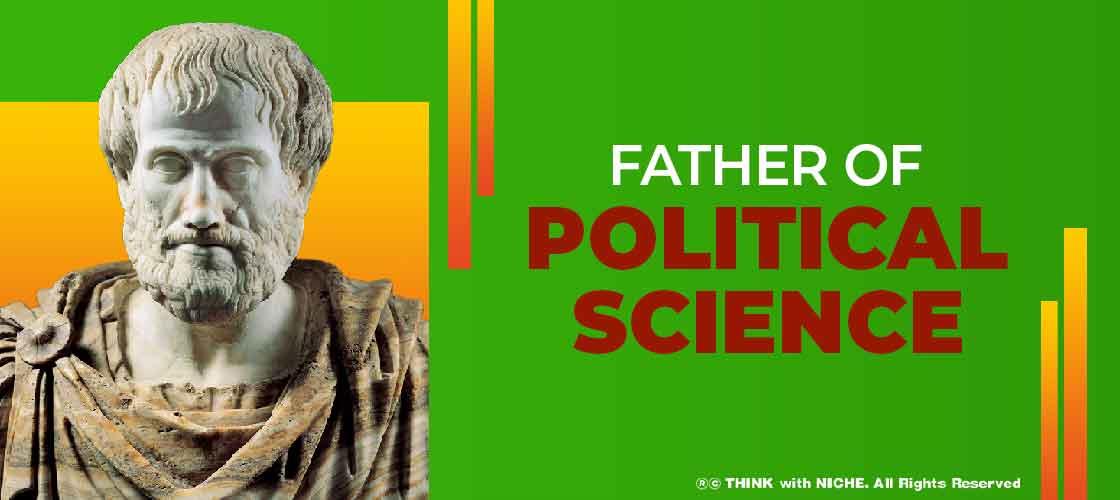
Post Highlights
This blog talks about the globally known Father of Political Science - Aristotle. Read on to discover some unknown facts about him! #ThinkWithNiche
Aristotle was a Greek philosopher who created the field of Political Science. He was born in 384 BC and died in 322 BC. He was a pupil of Plato and a teacher to Alexander the Great. Aristotle's writings cover many subjects, including physics, metaphysics, poetry, theater, music, logic, rhetoric, linguistics, and politics.
Introduction to Aristotle's Philosophy
Aristotle is known as the Father of Political Science. He was tutored by Plato on the Isle of Lesbos. His work is not limited to just his book on politics, which is called "The Politics." It also includes works on ethics, metaphysics, biology, zoology, logic, rhetoric, and poetry.
Life of Aristotle
Aristotle was born in Stagira, now part of Macedonia or Greece. His father was a physician to the royal court of Macedonia. His mother was a woman of high birth, and she would have been educated by philosophers. He is said to have studied with Plato for nine years, but he also studied under other great minds, including Anaxagoras, Xenocrates, and Crantor.
Education in Athens
The study of politics and political science has ancient roots. The term "political science" is derived from the ancient Greek word "polis," which means city-state. In ancient Athens, education was provided by Aristotle and other members of his school.
Views on Slavery
In his essay The Negro Race, written in 1851, he wrote that "unless the civil and political rights of the negroes are speedily recognized, and a fair chance given them to develop their manhood. It is yet too probable that our country will have to suffer from an agony which may shake its very foundations."
Views on Revolution: Views on Democracy and Tyranny
It is generally agreed by historians and philosophers that ancient Athens and ancient Rome were the two finest examples of an ideal republic. In both cases, however, the demos eventually revolted from the aristocracy. The reason for this was that they had gradually acquired too much power, as a result of which they became arrogant and oppressive.
Conclusion
Many of Aristotle's contemporaries believed that the earth was flat, but he rejected it. The Greek philosopher also noted that lunar eclipses occur when the earth reaches the center of the sun and the moon. Aristotle noted that the shape of the earth's circumference was a circle or sphere. If the earth were flat, its shadow would be very different. Next, Aristotle considered the position of the North Star. Northward, the star appeared to be moving closer to the sky. But if anyone were to go south of what we now call the equator, the North Star could not be seen at all. Finally, Aristotle watched the ships go into port. He noticed that in the distance, he could see the tops of their sails before he could see the entire ship. Aristotle reasoned that the crescent of the earth was not the same as the shape of the earth. If we were to live on a flat earth, Aristotle's conclusion would be perfect.
For More Sustainability Articles Click Here
Comments
Post a Comment